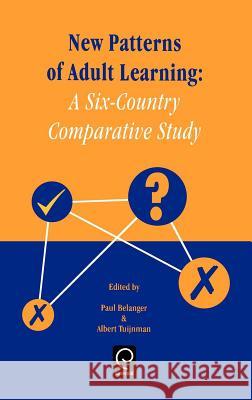New Patterns of Adult Learning: A Six-Country Comparative Study » książka
New Patterns of Adult Learning: A Six-Country Comparative Study
ISBN-13: 9780080430690 / Angielski / Twarda / 1997 / 280 str.
In post-industrial societies some workers will have stable, good jobs in knowledge and learning-intensive workplaces, while many others will be underemployed or locked into a series of precarious, low-skill jobs in the periphery of the economy. In such a society, inclusions and exclusions in economics and social life are bound to correspond closely to inclusions and exclusions in adult education and training. With the transition toward the post-industrial society increasingly complete, the challenge to reduce the exclusive tendencies in adult education and training, and to make learning a common, continuous and even universal experience is becoming more urgent than ever. The design of successful intervention strategies will depend crucially on the knowledge base of adult education, especially improved insights into the factors that are associated with participation and non-participation. By improving that knowledge base that this volume, which reports on a six-country comparative investigation of the patterns of adult education participation, seeks to make a contribution to policy and research.











